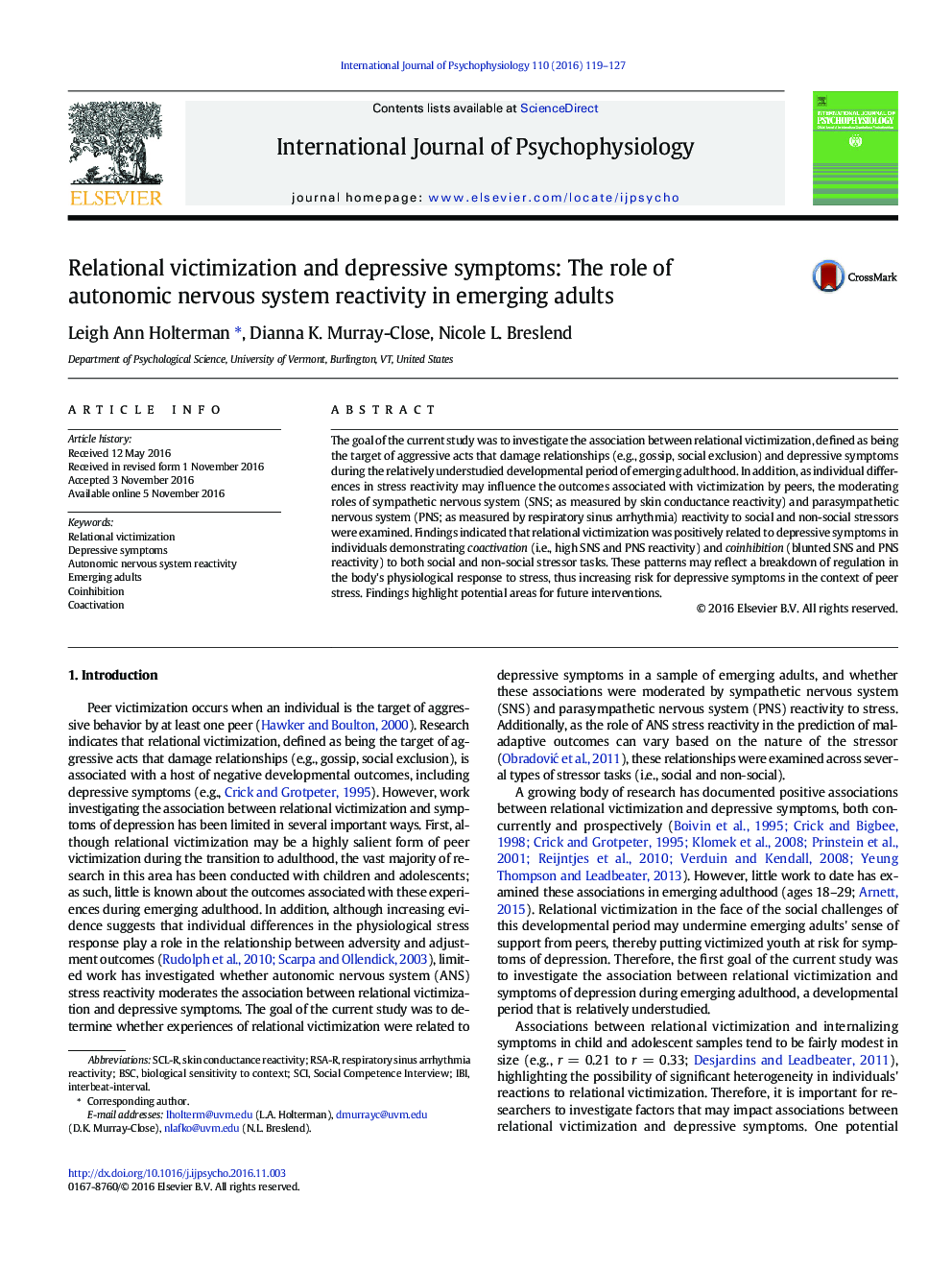| کد مقاله | کد نشریه | سال انتشار | مقاله انگلیسی | نسخه تمام متن |
|---|---|---|---|---|
| 5042390 | 1474386 | 2016 | 9 صفحه PDF | دانلود رایگان |
- Relational victimization was related to depressive symptoms in emerging adults.
- This association was moderated by autonomic reactivity to peer stress.
- Effects emerged among those exhibiting patterns of coactivation and coinhibition.
The goal of the current study was to investigate the association between relational victimization, defined as being the target of aggressive acts that damage relationships (e.g., gossip, social exclusion) and depressive symptoms during the relatively understudied developmental period of emerging adulthood. In addition, as individual differences in stress reactivity may influence the outcomes associated with victimization by peers, the moderating roles of sympathetic nervous system (SNS; as measured by skin conductance reactivity) and parasympathetic nervous system (PNS; as measured by respiratory sinus arrhythmia) reactivity to social and non-social stressors were examined. Findings indicated that relational victimization was positively related to depressive symptoms in individuals demonstrating coactivation (i.e., high SNS and PNS reactivity) and coinhibition (blunted SNS and PNS reactivity) to both social and non-social stressor tasks. These patterns may reflect a breakdown of regulation in the body's physiological response to stress, thus increasing risk for depressive symptoms in the context of peer stress. Findings highlight potential areas for future interventions.
Journal: International Journal of Psychophysiology - Volume 110, December 2016, Pages 119-127
